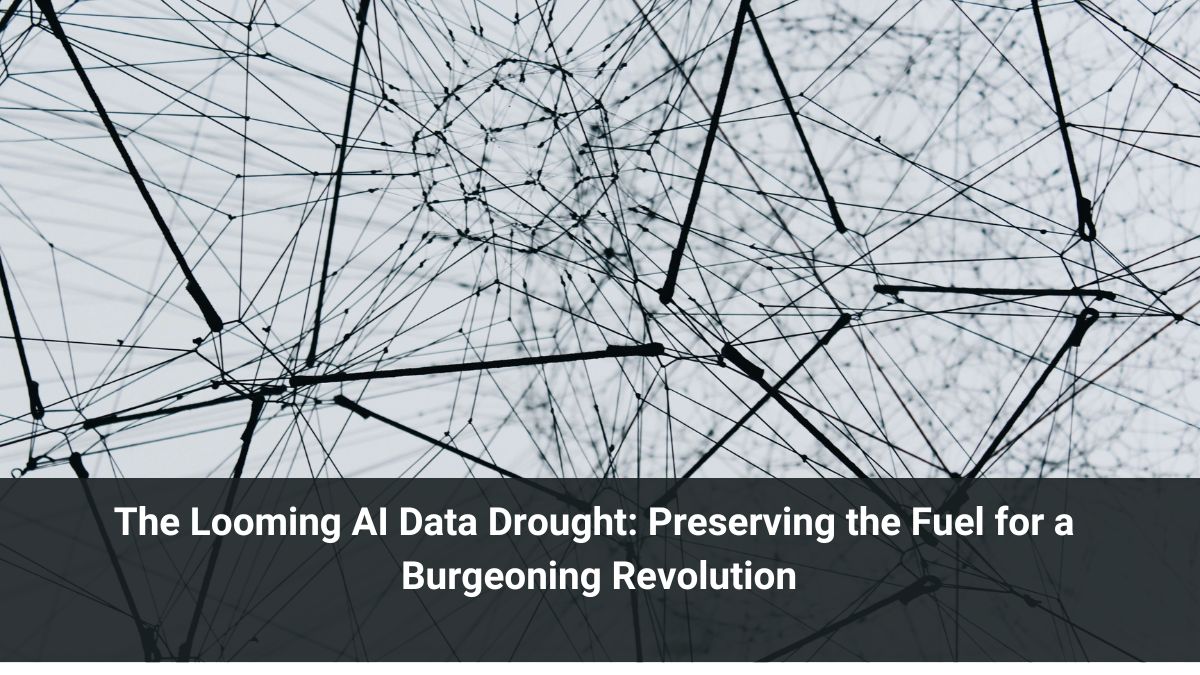AI
The Looming AI Data Drought: Preserving the Fuel for a Burgeoning Revolution

The Insatiable Appetite of AI Systems
In the rapidly evolving realm of artificial intelligence (AI), the remarkable capabilities of systems like ChatGPT are fueled by an insatiable appetite for data – the tens of trillions of words meticulously crafted by human minds and shared across the digital landscape. However, a sobering study released by Epoch AI, a research group dedicated to the responsible development of AI, warns of an impending drought that could impede the relentless march of progress.
The Depleting Reserves of Human-Generated Text
According to the study’s projections, the supply of publicly available training data, the lifeblood of AI language models, is finite. Tech companies engaged in a veritable “gold rush” to secure high-quality data sources risk exhausting these reserves by the turn of the decade – a timeframe spanning from 2026 to 2032.
Tamay Besiroglu, an author of the study, likens this phenomenon to the depletion of finite natural resources, cautioning, “If you start hitting those constraints about how much data you have, then you can’t really scale up your models efficiently anymore. And scaling up models has been probably the most important way of expanding their capabilities and improving the quality of their output.”
The Race for Data Supremacy
In the short term, industry titans like OpenAI, the creators of ChatGPT, and Google are engaged in a frenzied race to secure and, in some cases, pay for access to high-quality data sources. This includes striking deals with platforms like Reddit, where a steady stream of user-generated content flows, and news media outlets, where the written word remains a valuable commodity.
However, as the study suggests, the long-term implications are more concerning. The current trajectory of AI development may be unsustainable, as the rate of new blogs, news articles, and social media commentary fails to keep pace with the voracious appetite of these cutting-edge systems.
The Synthetic Data Conundrum
Faced with this impending scarcity, companies may be forced to explore alternative avenues, such as tapping into sensitive data sources like emails or text messages, or relying on “synthetic data” generated by the very AI models they are training. However, both options present significant challenges.
Nicolas Papernot, an assistant professor of computer engineering at the University of Toronto and researcher at the Vector Institute for Artificial Intelligence, warns of the potential pitfalls of training on AI-generated data. “It’s like what happens when you photocopy a piece of paper and then you photocopy the photocopy. You lose some of the information,” he explains, adding that this practice can further encode existing biases and unfairness into the information ecosystem.
Incentivizing Human Contribution
As the AI industry grapples with this looming challenge, the question of incentivizing continued human contribution to the data ecosystem becomes paramount. Selena Deckelmann, chief product and technology officer at the Wikimedia Foundation, which runs Wikipedia, acknowledges the irony of “having natural resource conversations about human-created data.”
While some entities have sought to restrict access to their data, Wikipedia has adopted a more open approach, recognizing the importance of fostering an environment that encourages people to contribute. As Deckelmann aptly states, “AI companies should be concerned about how human-generated content continues to exist and continues to be accessible.”
Charting a Sustainable Path Forward
As the AI revolution continues to unfold, it is clear that a sustainable solution must be found to address the impending data drought. This may involve a multifaceted approach, combining efforts to incentivize human contribution, responsible data management practices, and the exploration of alternative training methods that minimize reliance on finite data sources.
Ultimately, the success of AI systems hinges on striking a delicate balance between technological advancement and ethical considerations. By fostering a culture of transparency, collaboration, and respect for the value of human-generated data, the AI industry can navigate this challenge and continue to unlock the transformative potential of these remarkable technologies.
In a world where data is the fuel propelling AI systems to new heights, the onus falls upon all stakeholders – tech companies, researchers, policymakers, and the global community – to ensure a sustainable supply of this precious resource. Only through collective effort and foresight can we safeguard the continued progress of AI while preserving the invaluable contributions of human ingenuity and creativity.
